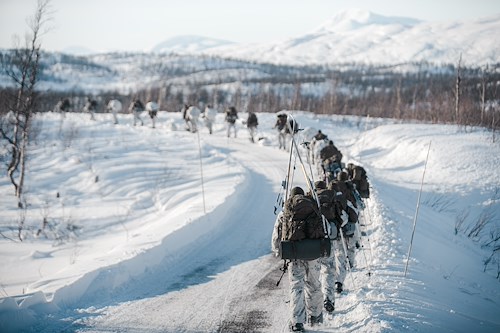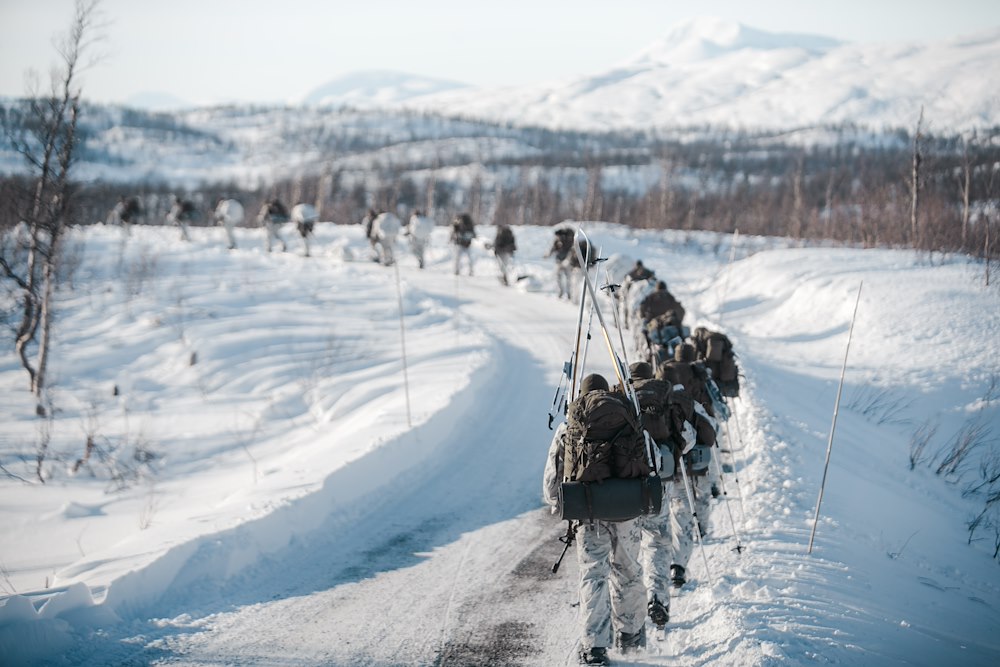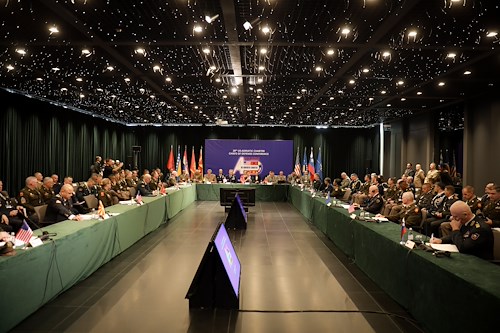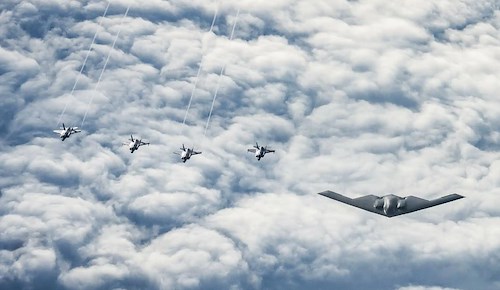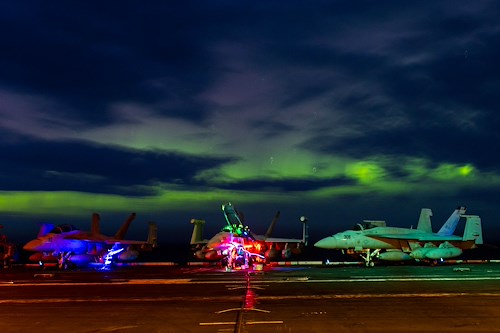Gallery contains 1 image
×
Photo 1 of 1
U.S. Marine Corps Forces, Europe
U.S. Marines with Marine Rotational Force Europe 21.1 (MRF-E), Marine Forces Europe and Africa, hike through winter terrain during a force-on-force exercise in Blatind, Norway, March 10, 2021. Companies executed platoon-level force-on-force training utilizing cold weather skills to improve technical and tactical proficiency in a winter combat environment. MRF-E focuses on regional engagements throughout Europe by conducting various exercises, arctic cold-weather and mountain warfare training, and military-to-military engagements, which enhance overall interoperability of the U.S. Marine Corps with allies and partners. (U.S. Marine Corps photo by Lance Cpl. Patrick King)
Photo by: Lance Cpl. Patrick King
Military leaders from 11 European and North American nations concluded two days of strategic discussions focused on Arctic security issues during the annual Arctic Security Forces Roundtable (ASFR) last week. While the ongoing COVID-19 global pandemic delayed plans to meet in person in Rovaniemi, Finland, the Finnish military leveraged virtual technology to host the in-depth, time-sensitive discussions focused on current and emerging High North security issues.
Established in 2010 by Norway and the United States, the ASFR promotes Arctic cooperation among military forces that operate in and around the Arctic region, while also supporting nations that promote peaceful development of the Arctic region and adhere to international-rule-based order.
“The amount of focused attention and activity – commercially, militarily, environmentally – in the Arctic, along with the region’s continued strategic importance, makes this high-level military gathering an imperative for us,” said U.S. Army Maj. Gen. Charles Miller, U.S. European, Command’s (USEUCOM) director of plans, policy, strategy and capabilities. “From the issues we discuss to the relationships we continue to foster and forge, this roundtable is truly an invaluable forum for our nations.”
This flag-and-general-officer level, military-to-military forum, co-chaired by Norway and the U.S., to promote regional understanding and enhance multilateral security cooperation is currently the only military forum focused on the Arctic region’s unique challenging security dynamics and architecture, and full range of military capabilities and cooperation.
"The roundtable serves a critical role in ensuring that each participating senior military leader representing some 11 nations gains a clearer understanding of the Arctic," said Commodore Solveig Krey, Defence Staff Norway’s Assistant Chief of Staff Operations. "This roundtable, working in concert with the full range of bilateral and multilateral exercises and operations that occur throughout the year, helps support a secure, stable Arctic region where nations work cooperatively to address security challenges of collective concern."
During this year’s ASFR, participants discussed the roles of the Arctic Council, European Union and NATO, and those organizations’ aims to foster governance and cooperation in the region. Each participating nation detailed its own national Arctic strategy, senior representatives from NATO presented the alliance’s current Arctic outlook, and the participants addressed important transportation and environmental issues.
-30-
About USEUCOM
U.S. European Command (USEUCOM) is responsible for U.S. military operations across Europe, portions of Asia and the Middle East, the Arctic and Atlantic Ocean. USEUCOM is comprised of more than 64,000 military and civilian personnel and works closely with NATO Allies and partners. The command is one of two U.S. forward-deployed geographic combatant commands headquartered in Stuttgart, Germany.

